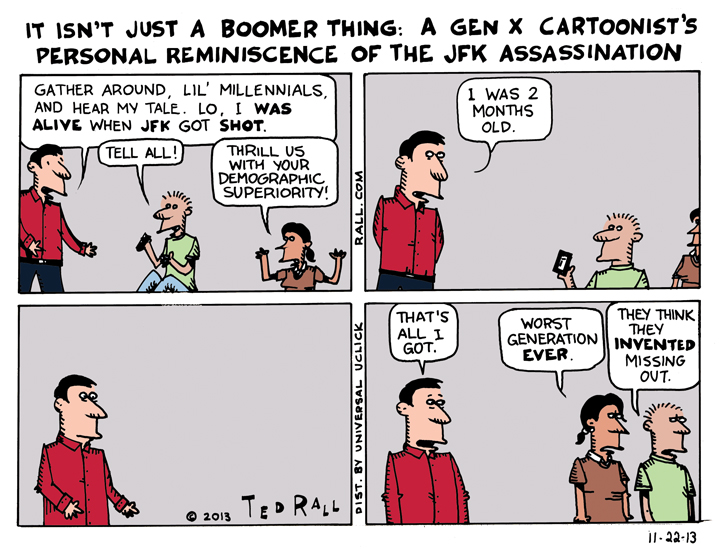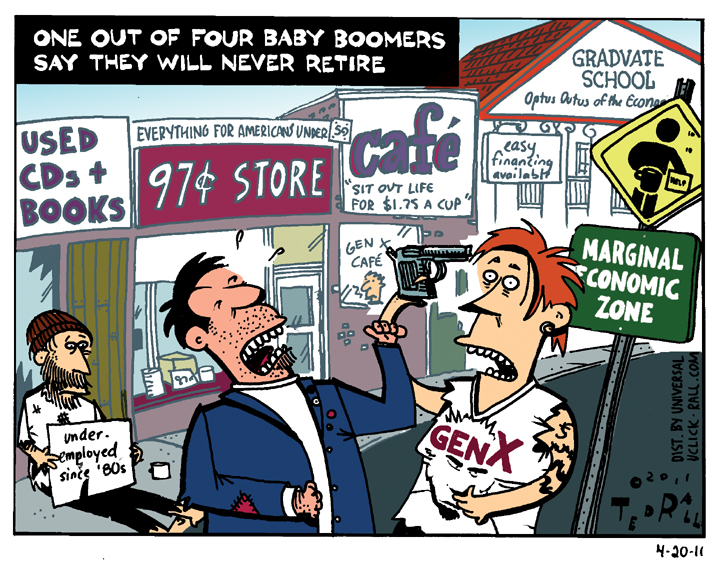Originally published by Breaking Modern:
It’s too bad, but Baby Boomers continue to belie generational stereotypes. In a recent survey, they overwhelmingly say they either feel too healthy or too financially insecure to retire at the normal age 65. Even to the bitter end, they continue to overshadow Generation Xers and Millennials who need them to step aside gracefully and make room for them.







